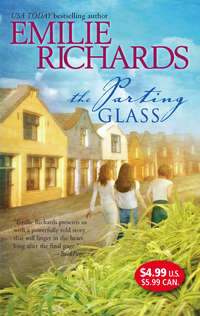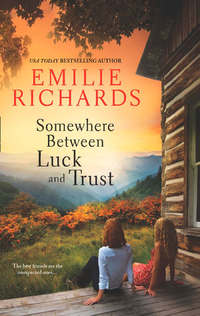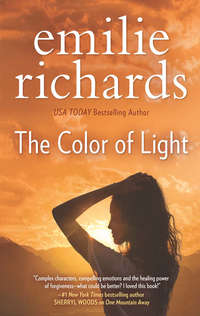
Полная версия
Rising Tides
Some of the people who came to Les Américains were famous. From the moment Nicky and Clarence set foot on French shores, Clarence had been determined that she would have the kind of education and life her father had wanted for her. He had gone to work in a series of nightclubs, playing piano with one jazz band, then another, to fund school tuition and a comfortable apartment the two of them could call home. She had studied literature and art, language and deportment. Her French was perfect; her English was, too—just in case perfect English was ever called for. Best of all, the sisters had encouraged her love of reading, and Nicky knew, from all she had devoured, that people like Ernest Hemingway and Scott Fitzgerald, men who had danced and drunk at Les Américains, were men to reckon with.
Now she greeted a new group of guests. Two of the men were familiar, American journalists from some where in the Midwest who were in Europe on assignment for the next several months. They looked exactly alike to her, clean-cut, brown-haired youths wearing Sears and Roebuck worsted suits and friendly white smiles. The last time they’d appeared, they had talked endlessly about Lindbergh and given her stock-market tips she couldn’t use. She thought of them as Siamese twins, Bob One and Bob Two, but she called them “honey” and “sugar” to their faces. They ate it up.
“Honey, so glad to have you.” She kissed Bob One on the cheeks and turned to Bob Two. She had mastered the friendly kiss, the insubstantial but much appreciated greeting that made the guests at Les Américains feel welcomed. “Sugar.” She stepped back, extending her hand to those in the party she didn’t know.
She knew exactly who to touch and who to avoid. It was a sixth sense she had acquired, an intuition honed by subtle rejection and rib-crushing response. She had been the hostess for a year now, and she had learned which part of herself to share and which to hoard. Her livelihood was balanced somewhere in between—along with her self-esteem.
She seated the Bobs and their party, darting back and forth in her weighty green-and-rose dress like a ruby-throated hummingbird. By the time she left them, she knew they were comfortable and well on their way to finishing the first of many bottles of champagne.
Clarence’s piano grew louder, backed up now by the thumping of a bass and the mellow moaning of horns and a clarinet. Voices grew louder in response, and laughter rang through the room. She started toward a new group that had just arrived, a casual mélange of colored and white.
She had lived in Paris for eight years, and she had seen and shrugged off a world of experience. But she still wasn’t used to the coal black hand of a man on the chalk white arm of a woman. Black and white in public together still startled her, just as the lack of racism among the French did. She continued to be haunted by childhood experiences. When she shopped in Les Halles, she expected to be ordered to the end of every line. Once, not long ago, she had awakened screaming when car horns blared in the street below.
She greeted three of the men, jazz musicians who often played in a rival nightclub. She smiled at the women and watched them assess her. Their gowns were straight off the pages of L’Art et la Mode, carelessly worn and supremely designed. All the women slouched in the current fashion, their boyishly bound breasts nudging their bodices. Nicky’s dress wasn’t worth the hem of a Poiret or Patou, but she was satisfied that her longer legs made up for the difference.
One of the men, a drummer named Tadpole Harris, embraced her, and she remained in his arms. She recognized Julia St. Cloud, known to her friends as Cloudy. A short woman with shingled blond hair and a long, narrow face, she was an heiress who sometimes served as a patron for promising Negro talent.
“Nicky Valentine’s the only reason we’d come to this joint,” Tadpole told them. “She can dance. Can this little gal dance!”
“And sing,” she reminded him. “I sing, don’t forget. Besides, you come to hear Clarence. You know you do.”
“Clarence’s her granddaddy,” Tadpole explained. “Watches over her like an old papa lion. And he can stomp those ivories, New Orleans style. Oughta be here sometime for a real grand splaz with Clarence. Best there is.”
Nicky glowed, as she always did when Clarence was praised. Much of the jazz in Paris was stale, the hashed-over sounds of a more fertile time and place. Cut off from their roots, some musicians had lost touch with their heritage and its soaring potential. Not Clarence. He jammed with every horn player and drummer just off the boat from America and learned the innovations going on at home.
She broke free from Tadpole’s hug, ready to lead his party to a table near the piano, when another man came through the door to join them. She was tall, and he was only a little taller, a broad-shouldered, large-boned man in his early thirties, with smooth dark skin and eyes that seemed to bore right through her.
“You haven’t met Gerard,” Tadpole said. “Gerard Benedict. Cloudy’s friend.”
Nicky smiled and murmured her greeting. Then she realized why the name seemed familiar. “Gerard Ben edict, the poet?”
He raised a brow. “You know my work?” he asked, in a voice accented with southern nights and disbelief.
She stood a little straighter. “Can you imagine that, sugar?” she said, softly slurring her own response. “Once ‘pon a time a nigger boy from Alabam’ learned to write a word or two, and a nigger gal from Looziana learned to read ‘em. Whatever’s this ol’ world comin’ to?”
Tadpole roared his approval. She made a graceful dancer’s turn and started across the floor. At the table, she turned on the charm, fussing over everyone, but she kept her back to Gerard. She had endured the occasional slight from white Americans who, even in the tolerant atmosphere of Paris, hadn’t quite buried their prejudices. But she couldn’t remember being treated this way by one of her own.
She was everybody’s darling, the sassy, rambunctious granddaughter of the revered Clarence Valentine. She had sung and danced for the Prince of Wales and the Princese de Polignac. Artists, writers and poets were as common in her world as busboys and horn players. She couldn’t imagine what she had done to one Gerard Benedict to deserve his derision.
She felt a hand at her wrist and fingers encircling it to keep her in place. “Then you’ve read my work?” a deep voice rumbled in her ear.
“Sure have.” She turned her head a little, so that she could see his face. “Can’t say I liked it much. All those folks swinging from trees and getting buried alive.”
“Maybe you’re just out of touch with life in America the beautiful. You look more white than colored.”
“Oh, I’m the best of everything. A real snappy piece of work.”
“Maybe you are.”
She met his eyes and gave him a lazy smile. She decided to forgive him. “You better believe it.”
She left the table, heading straight for Clarence. He swung into a peppy introduction without missing a beat. The rest of the band took it up. Les Américains was too small for the jazz orchestras of nightspots like the Théâtre des Ambassadeurs in the avenue Gabriel, which had once imported a sixty-three-member troupe from Harlem’s Cotton Club. But what Clarence’s band lacked in size, it made up for in moxie and bare-knuckle talent.
She clapped her hands to the rhythm, which was growing progressively bouncier. Someone flashed the spotlight right on her, and the din softened.
“Good evening, ladies and gentlemen,” she said after Clarence played a splashy finale. “And welcome to Les Américains, which tonight is proud to feature Clarence Valentine and the Valentine Sweethearts.” She stepped forward and folded her hands demurely. At Clarence’s cue, she began to sing a poignant ballad about a man in love. Her voice was halting. The room grew quieter. She ended the intro with one finger to her lips in sad contemplation. Then a breath, a pause, and she was off.
“Yes sir, that’s my baby!” Clarence and the band cut loose, and so did she. She wiggled and swung, her arms akimbo as she shouted the lyrics and began to Charles ton. Her feet flew, her hands flew, her short, dark curls whipped against her cheeks.
The room broke into applause as she shimmied her hips and a thousand glass beads on her dress sparkled in the spotlight. She smiled her naughtiest smile as she hammered out the words. She touched her hips and turned for a backside view. Her feet flew in double time, her hands and knees crossed with rubbery grace; then she locked her fingers behind her head and started all over again. By the time she was finished, the dance floor, which she’d had to herself, was filled with hot-blooded sheiks and shebas.
She accepted compliments before she retreated to Clarence’s side. She would sing and dance again when there was a lull.
“You’re a hit, Nickel.”
She waited until her breathing slowed to nearly nor mal. “You sure make me earn my keep.”
He chuckled, and she kissed his grizzled cheek.
“I saw you making eyes at that man.”
“Making eyes my foot!”
His hands flew over the keyboard. “I’m not gonna be here forever to watch out for you.”
“Don’t say that.”
“Don’t go doin’ nothin’ foolish.”
“I’m nearly twenty. I’ve outgrown foolishness.”
“You’re smack in the middle of it. Wish your father was here to make you behave.”
He almost never mentioned Rafe. “You’ve been like a father. Sometimes I forget you’re not.”
“You never forget.” He looked up. “Things would have been different if your daddy’d lived.”
“Miss Valentine?”
She swung around to find Gerard Benedict behind her. She moved away from the piano. The music slowed to fox-trot tempo. More dancers crowded the floor. A successful night at Les Américains was truly under way.
“Mr. Benedict?”
“Would you like to dance?”
“Sorry. I only dance alone.”
“Why not make an exception?”
She looked toward the table, where Cloudy was watching them. “What about your lady? She still going to fund your next book if you dance with me?”
“Nobody tells me what I can do.”
“I don’t dance with the guests, spade or ofay. That way nobody’s unhappy.”
“I’m unhappy.”
She felt something sparking inside her. She’d heard a thousand lines and had a thousand funny responses. She couldn’t think of one.
“I’ll pick you up after work.” He moved a little closer. “We’ll have breakfast.”
“Why?”
“Why not?”
“Suit yourself.”
His teeth gleamed white against his skin. His face seemed strangely exotic to her, broad and mysterious, a supremely African face, with all the lure of tribal warriors and mystic rituals. “I’m going to suit myself, Nicky Valentine.” As Cloudy watched from the table, he lifted her hand and kissed it.
He was a poet, with several critically acclaimed volumes and a contract for another. He was a part of the Negro Renaissance centered in Harlem, the peer of Langston Hughes and W. E. B. Du Bois. She entertained in a bar, dancing the Charleston.
They had dark-roast coffee and croissants on the terrace of Le Dôme in Montparnasse, sandwiched between tall boxes of red geraniums and the table of a couple who never exchanged a word. Nicky had gone home first to bathe and change into a skirt and sweater. As light streamed through the geraniums, she removed her cloche hat.
“It’ll be hot by noon,” she said, helping herself to an other croissant. “In a month or so we’ll be closing down.”
“Closing?”
“Sure. No one stays in the city in August. You’ll find it hard to eat or shop if you stay here.”
“Where do you go?” He sat back. He hadn’t taken his eyes off her since they arrived. She wasn’t used to intense scrutiny. She found herself squirming under the heat of it.
“Here or there. Spain once. The South of France. Clarence has friends with a house in Antibes. Maybe we’ll go there.”
“You call your grandfather Clarence?”
“Odd, isn’t it?” She gave no explanation.
“I called mine Old Man.”
“Tell me about him.” She had already listed the basic facts of her own life. Her years in Paris, her education, a hazy, fabricated account of her life in New Orleans. But Gerard had said little about himself.
“You were wrong about Alabama. I was born in Georgia, but we moved to Harlem when I was ten. My father didn’t make his crops two years in a row, and the white man took our farm. We left with nothing but a mule and an old wagon. We worked our way up north, mile by mile. By the time we crossed the Mason-Dixon line, we didn’t have the mule. Old Man got sick and died in Maryland, and we didn’t have the money to lay him to rest.”
Nicky already knew that Gerard was not a man who would appreciate sympathy. She just nodded.
“Some church people took pity and saw Old Man got buried. Then they bought us train tickets to New York. By that time there wasn’t much left of my daddy. He drank up what pennies he managed to earn. We moved in with a cousin, and she raised us until we were old enough to go out on our own.”
“What about your mama?”
“Dead early. Real early.”
“Was Harlem better than Georgia?”
“No place’s better than any other.”
She toyed with her coffee cup. “Then you’ve been everywhere?”
“Just about.”
“You’re a real hard-boiled egg, aren’t you?”
He smiled, and the shadows lifted. “You haven’t seen enough of the world to understand.”
“If I haven’t, why are we having a conversation?”
“There’s something about you.”
His voice was resonant and deep. The words, as clichéd as they were, lingered in the air, settled provocatively against her skin, bored inside her to places that had never been touched. She tried to be flip. “Yeah. Yeah. Long, long legs. Sea green eyes. A smile that lights up the darkest corner of a room.”
“Sounds like you’ve heard it all.”
“And more.”
“But you’ve never heard it from me.”
She faltered for a moment, aware—although she fought it—that he was moving quickly to some place she had not yet inhabited. “Why should that matter?”
He reached for her hand. His was wide, with short, sturdy fingers. A farmer’s hand with no calluses. He en closed hers and held it tightly. “Because I’m going to matter,” he said. “Starting right now.”
She was terribly afraid he might be right.
Nicky spent August with Gerard, in the third-story apartment of a tiny building in the rue Campagne-Première. The apartment was tiny, too, one room just large enough for a bed and desk, another with a love seat, a chair and two arched windows looking out over Paris rooftops. The kitchen had a stone sink and one gas burner; the toilet and tub were down the hall.
As if to make up for its truncated size, the apartment was a short distance from the beautiful Luxembourg Garden, with its graceful statues and Médicis Fountain. She and Gerard strolled there sometimes in the late afternoon and stood under the shade of chestnut trees, watching children sail toy boats at the edges of the pond.
They explored Gerard’s neighborhood, too, moving slowly through the narrow, winding streets of Montparnasse, stopping for crusty baguettes at a corner bakery, a small wheel of Mont d’Or from the shop next door, tart purple grapes from the greengrocer at the end of the block. Paris was sleeping, its residents and guests dreaming away their summer in other, cooler places. But Nicky dreamed only of Gerard.
She awoke each morning wrapped in his arms, too warm in the windowless room, and yet never quite warm enough. She had been raised among musicians. She had come of age in an era when jazz trumpeted the battle cry of sexual freedom and in a country where Prohibition was only a word in another language. But through it all, she had retained a stunning naiveté. Until Gerard.
He was all the things she hadn’t known enough to wonder about. When he filled her, she understood the words to love songs she had learned years before and never really believed.
He was complex and often moody. In sleep his face was kind. She could see the man he might have been, a man untormented by the devils of racism and rejection. Awake she could see his struggle to transcend his pain. He was a strong man, a man who took pleasure in his body and in hers. A man gentle enough to take her virginity and passionate enough to take her innocence.
He was also a man who drank too much, who brooded for days at a time and sometimes raged uncontrollably. But in his best moments he was adept at driving away the doubts that beset her. When she was with him she believed in their future together; she believed that they could hold the world away and make a life here in her adopted country. Although he never made promises or talked about the days to come, she believed.
Конец ознакомительного фрагмента.
Текст предоставлен ООО «ЛитРес».
Прочитайте эту книгу целиком, купив полную легальную версию на ЛитРес.
Безопасно оплатить книгу можно банковской картой Visa, MasterCard, Maestro, со счета мобильного телефона, с платежного терминала, в салоне МТС или Связной, через PayPal, WebMoney, Яндекс.Деньги, QIWI Кошелек, бонусными картами или другим удобным Вам способом.







